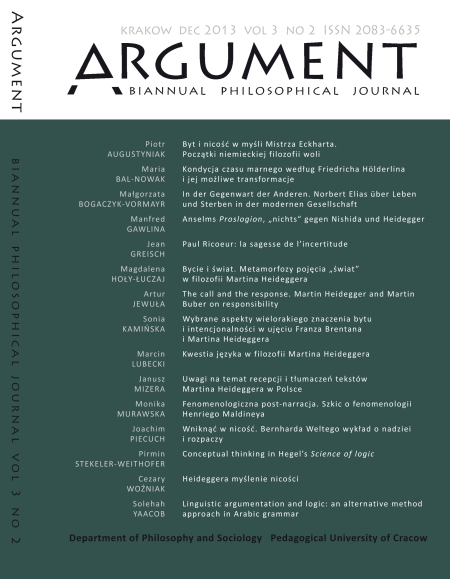Wybrane aspekty wielorakiego znaczenia bytu i intencjonalności w ujęciu Franza Brentana i Martina Heideggera
Słowa kluczowe:
Brentano, Heidegger, Aristotle, St. Thomas, being, ontology, categories, existence, intentionalityAbstrakt
Selected aspects of the multiple meaning of being and intentionality as defined by Franz Brentano and Martin Heidegger: The text aims to acquaint the Reader with Franz Brentano’s doctoral dissertation Von der mannigfachen Bedeutung des Seienden nach Aristoteles (1862), which opens the Aristotelica series and that is known to have inspired young Heidegger to become a philosopher. The text analyses the nature and scope of this inspiration. The first part tells the story of the book’s origin and tries to provide a bigger picture for Heidegger’s acquaintance with Brentano’s philosophy as well as presenting him against the background of Brentano’s other students (Kazimierz Twardowski, Edmund Husserl, Alexius Meinong, Carl Stumpf, Anton Marty, et al.). The second part describes the famous 15 theses on being, which are the heart of the book On the Several Senses of Being in Aristotle, and thus enables a comparison of Brentano’s Thomistic ontology with the fundamental ontology of Heidegger. And this comparison is the subject of part three, which also tries to verify to what extent Heidegger was in fact indebted to Brentano and whether we can call him a “brentanist” at all.


